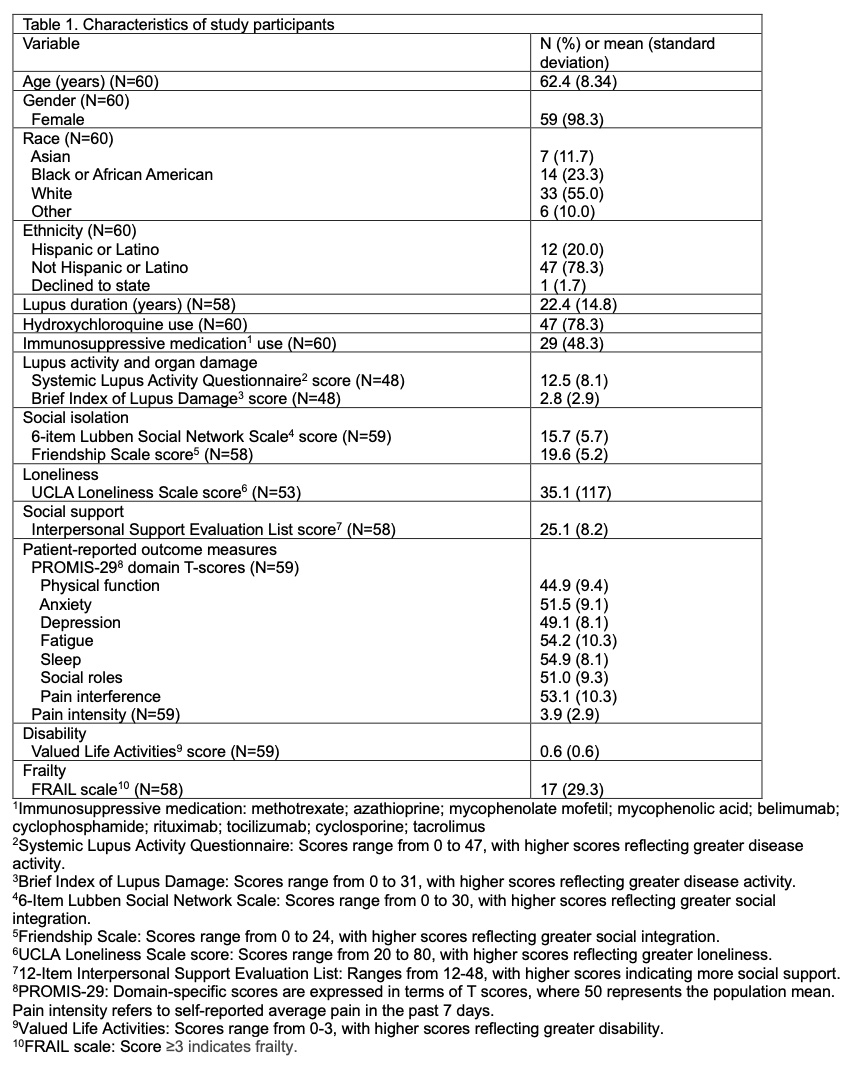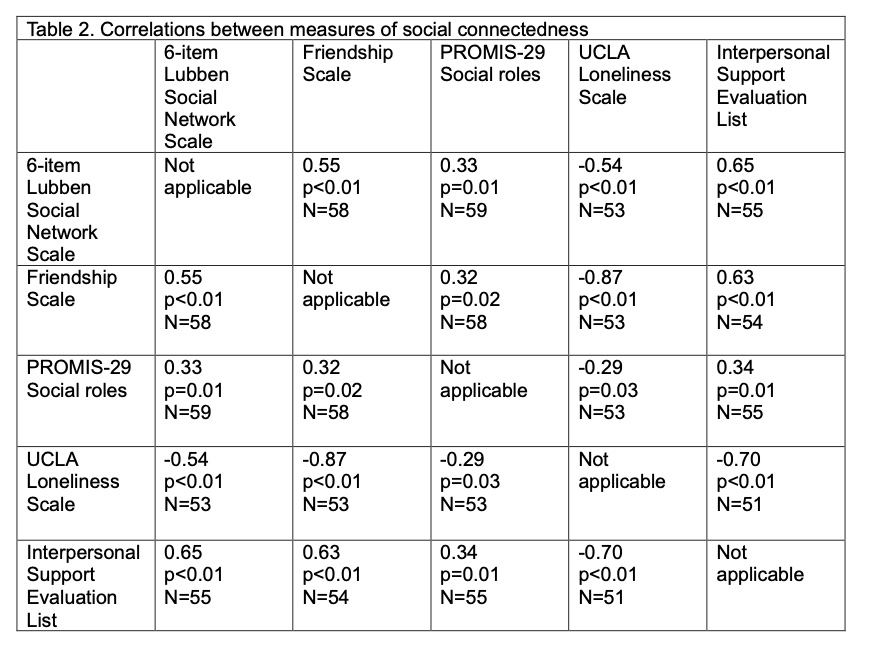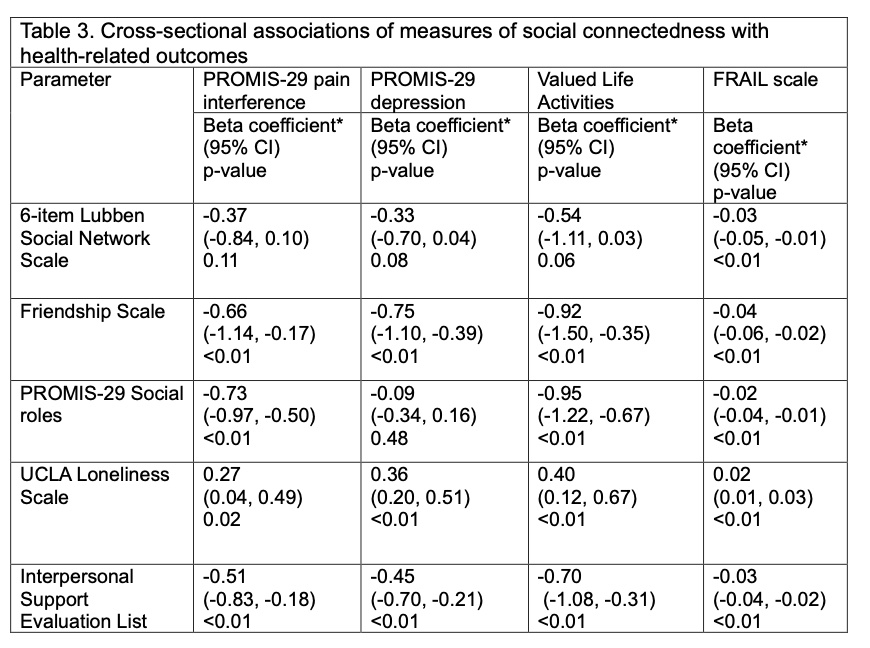Session Information
Session Type: Poster Session B
Session Time: 10:30AM-12:30PM
Background/Purpose: Loneliness and social isolation have been associated with multiple adverse health outcomes in the general population of older adults. The goal of this study was to understand the impact of social connectedness (i.e., loneliness, social isolation, and social support) on pain, depression, self-report disability, and frailty in middle-aged and older adults with systemic lupus erythematosus (SLE).
Methods: Adults ≥50 years of age with SLE validated according to the 2019 ACR/EULAR criteria took part in a cross-sectional survey study at a single center. Sociodemographic characteristics and disease features were self-reported. Multiple self-report instruments were used to elicit social connectedness and patient-reported outcome measures, including pain interference, depression, disability, and frailty status (Table 1). Sample characteristics were summarized using descriptive statistics. Relationships between measures of social connectedness were evaluated using Pearson correlations. Associations between measures of social connectedness and pain interference, depression, disability, and frailty status were assessed using linear regression and adjusted for age, race, and ethnicity.
Results: Of 60 participants, most were female (98.3%) with mean age and SLE duration of 62.4 and 14.8 years, respectively (Table 1). Measures of social connectedness were significantly correlated (p values ranging from 0.03 to < 0.01) (Table 2). Greater social integration was significantly associated with less pain, depression, disability, and frailty (all p< 0.01) (Table 3). Greater loneliness was significantly associated with greater pain, depression, disability, and frailty (p values ranging from 0.02 to < 0.01). Greater social support was significantly associated with less pain, depression, disability, and frailty (all p< 0.01).
Conclusion: Lack of social connectedness is significantly associated with pain, depression, self-report disability and frailty status in middle aged and older adults with SLE. Future studies should be aimed at further characterizing these relationships in order to develop evidence-based, patient-centered strategies to increase social connections and improve health outcomes in this population.
To cite this abstract in AMA style:
Lieber S, Shea Y, Gottesman S, Smole A, Sun D, Navarro Millan I, Reid M, Mandl L. Social Connections Among Middle-Aged and Older Adults with Systemic Lupus Erythematosus: A Single Center Cross-Sectional Study [abstract]. Arthritis Rheumatol. 2024; 76 (suppl 9). https://acrabstracts.org/abstract/social-connections-among-middle-aged-and-older-adults-with-systemic-lupus-erythematosus-a-single-center-cross-sectional-study/. Accessed .« Back to ACR Convergence 2024
ACR Meeting Abstracts - https://acrabstracts.org/abstract/social-connections-among-middle-aged-and-older-adults-with-systemic-lupus-erythematosus-a-single-center-cross-sectional-study/



